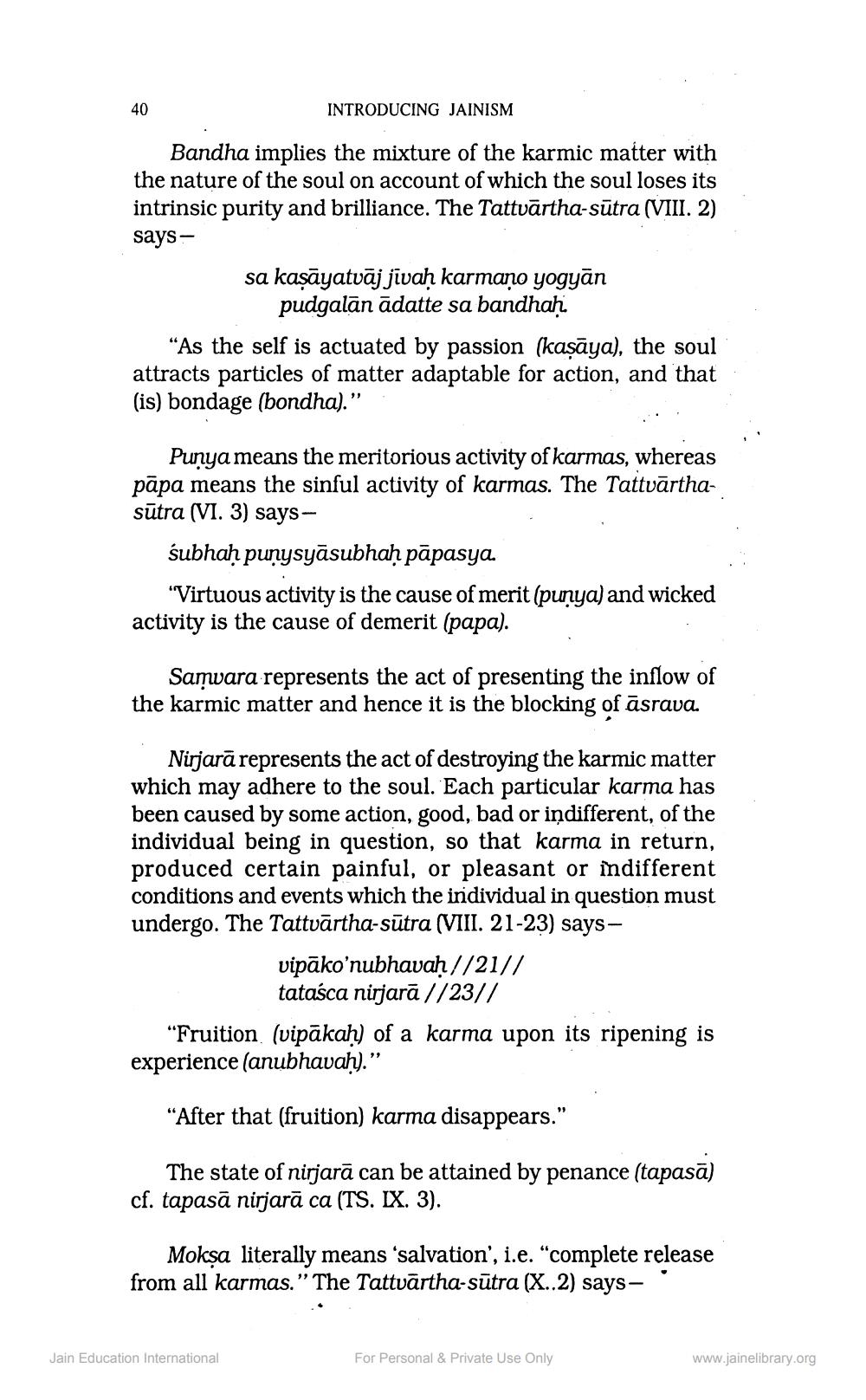________________
40
INTRODUCING JAINISM
Bandha implies the mixture of the karmic matter with the nature of the soul on account of which the soul loses its intrinsic purity and brilliance. The Tattvārtha-sūtra (VIII. 2) says
sa kaşāyatvāj jīvaḥ karmano yogyan
pudgalān ādatte sa bandhaḥ "As the self is actuated by passion (kaşāya), the soul attracts particles of matter adaptable for action, and that (is) bondage (bondha).”
Punya means the meritorious activity of karmas, whereas pāpa means the sinful activity of karmas. The Tattvārthasūtra (VI. 3) says
śubhaḥ punysyāsubhaḥ pāpasya.
"Virtuous activity is the cause of merit (punya) and wicked activity is the cause of demerit (papa).
Samvara represents the act of presenting the inflow of the karmic matter and hence it is the blocking of āsrava.
Nirjarā represents the act of destroying the karmic matter which may adhere to the soul. Each particular karma has been caused by some action, good, bad or indifferent, of the individual being in question, so that karma in return, produced certain painful, or pleasant or indifferent conditions and events which the individual in question must undergo. The Tattvārtha-sūtra (VIII. 21-23) says
vipāko'nubhavaḥ//21//
tatasca nirjarā //23// "Fruition (vipākaḥ) of a karma upon its ripening is experience (anubhavah).”
“After that (fruition) karma disappears."
The state of nirjarā can be attained by penance (tapasā) cf. tapasā nirjarā ca (TS. IX. 3).
Moksa literally means 'salvation', i.e. "complete release from all karmas." The Tattvārtha-sūtra (X. 2) says
Jain Education International
For Personal & Private Use Only
www.jainelibrary.org




